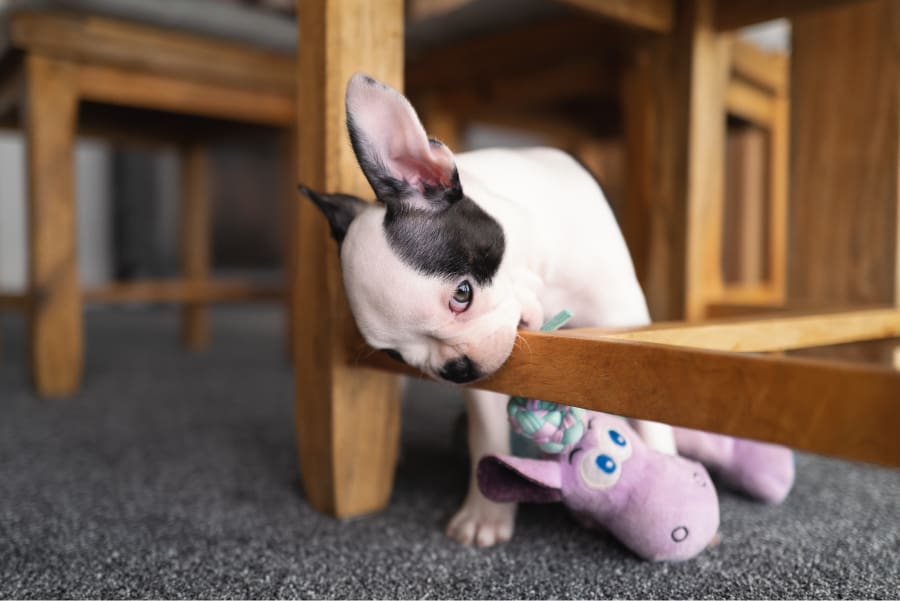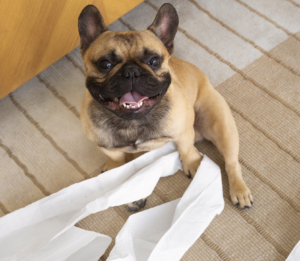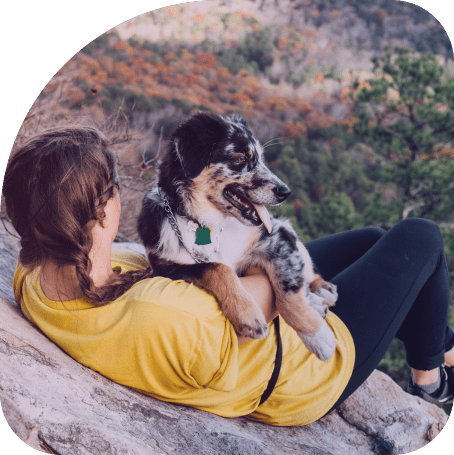Puppy biting is a normal and expected part of being a new puppy parent.
Puppies don’t have hands, so their mouth is the only way they can interact with the world. Puppies use their mouths in communication, in entertainment, in exploration and education.
We usually get our new puppies smack in the middle of their bitiest period with their siblings (7-9 weeks of age) so it is normal for them to start to redirect that biting onto the closest thing they have to siblings – their new family. Puppies have sharp needle teeth (as you have probably already discovered) but it is important to know that they do serve a function. Because puppies have very little jaw strength, they need the sharpness of those teeth to get their point across. If they had continued to live with their siblings, those sharp teeth would come in very helpful in communicating with their fellow puppies. Unfortunately for us, we do not have a hairy coat to protect us so our soft skin bears the full brunt of those little daggers. This can make it very hard to ignore, or not react negatively when a puppy is biting us. But it is important to think about WHY they are biting – here are a couple of different reasons
- so that you move away, leave them alone, give them space and a break
- for attention and interaction
- for sensory pay off – feels good on their gums and teeth
- to help them improve their comfort and get their excitement under control – self soothe
- to gain access to things or places
Puppy biting is social behaviour and not related to teething.
It actually starts to reduce just as teething begins at about 14/15/16 weeks of age.
Here are some ways you can manage your puppy’s biting.
- Try to replace your body part with a toy – make the toy engaging with movement and sounds. Longer toys like rope toys are useful because your puppies’ mouth is that much further away from your hands.
- Stand up and walk away. Doing this teaches the puppy that biting means the play stops. If your puppy follows you, go into another room and close the door. This is especially good if you have a puppy that lunges up to your face or hair when you are sitting down.
- Grab some treats and do some training. If a puppy is biting you, they are looking for engagement. Obedience training is a great option to engage with your puppy in a constructive way that both parties can enjoy.
- Set them up with a stuffed Kong or safe food chew.
- Ask yourself when the last time they had a nap was. All puppies need between 12-14 hours of sleep per day. Just like people, an overtired puppy is a cranky puppy. Having a pen or crate for them to have some down time is a great way to teach relaxation and how to be ok being on their own.
- Avoid rough play – the more a puppy practices playing roughly, the more likely they are to do it as they get older, and its less fun when your cute puppy is a big strong dog.
- Keep a leash attached to your puppy when they are in the house so that you can redirect them easily without having to make direct contact with them.
- Take them out for a potty break. Sometimes biting is their only way of trying to communicate that they need to go outside.
- Be patient and understanding.
Most importantly remember that puppy biting is normal, and its important to not react negatively.



